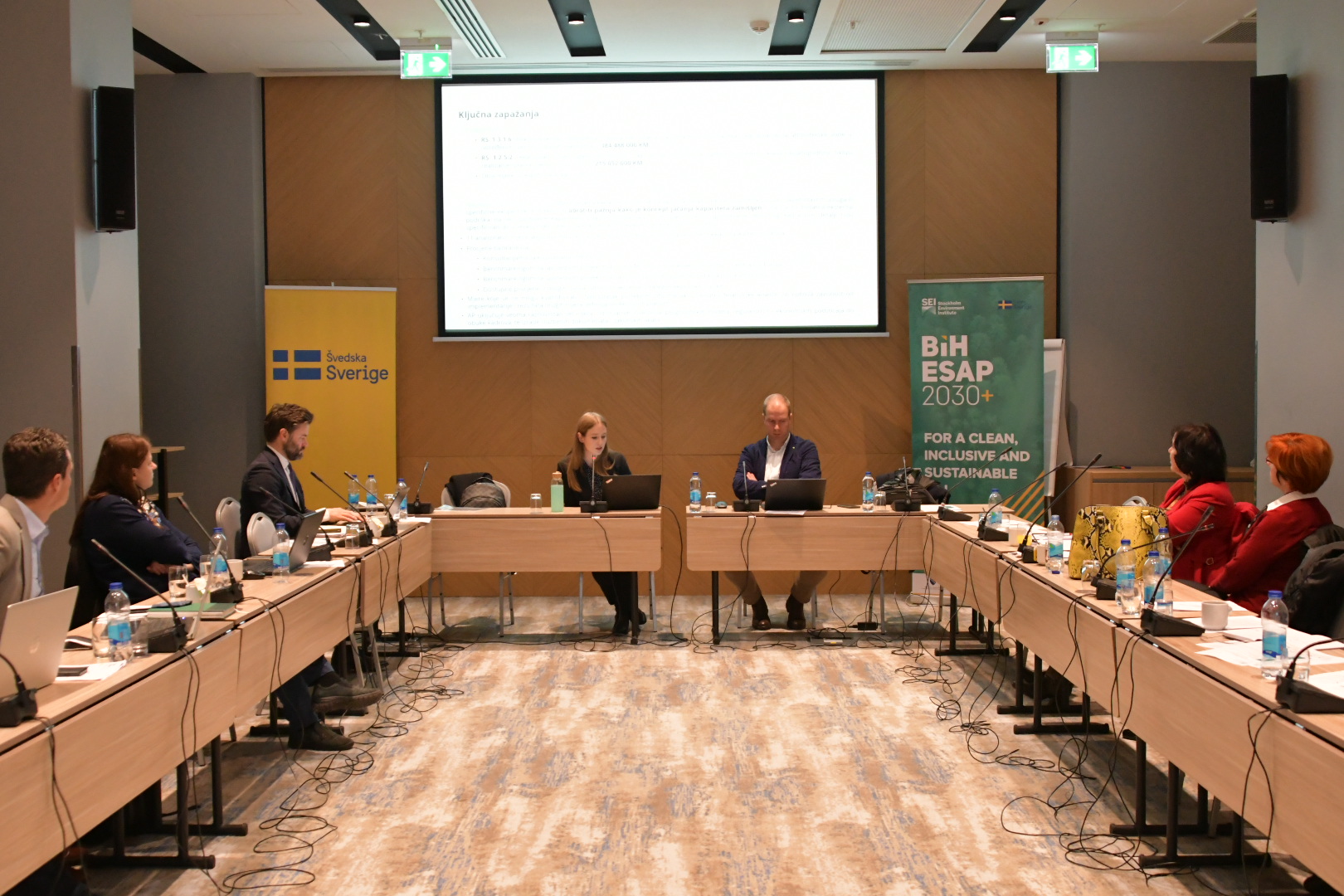Bosnia and Herzegovina, a country of abundant natural wealth, is striving to achieve the goals of the Green Agenda for the Western Balkans, as well as to adopt the principles of circular economy and decarbonisation in the next 10 years. Is it an over-ambitious plan or a feasible reality? What measures need to be taken and what does the future of this country look like? The BiH ESAP 2030+ project is developing a strategy and action plan that will contain clearly defined strategic and thematic goals related to the environment, and offer concrete proposals for addressing challenges at each level of government (BiH, FBiH, RS, and BD BiH) in the next decade.
Bringing different actors together
After the successful fourth cycle of working group meetings held during the early summer of 2021, where measures within the thematic action plans were defined, the BiH ESAP 2030+ team approached the fifth cycle of working group meetings. As the project is approaching its final phase, the members of the working groups had the opportunity to review the thematic action plans, improved by adopting the comments received from the key stakeholders, and approach the prioritization process at the level of expected outcomes.
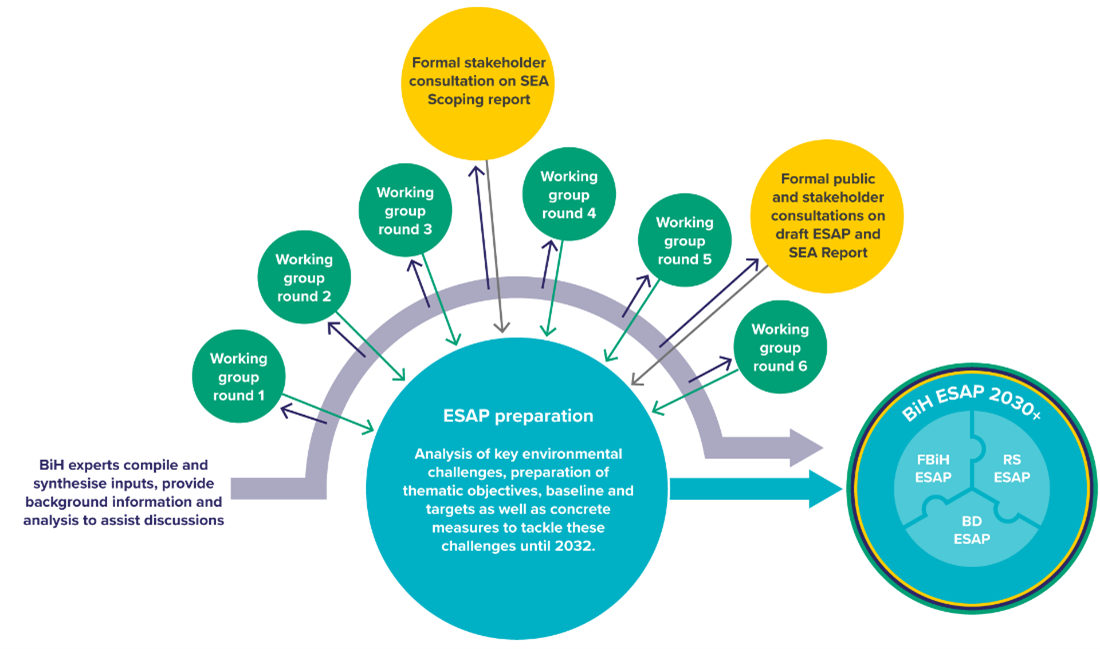
As foreseen in the Project Document, in cases where raised issues cannot be resolved during the working group meetings, matters are further discussed at the meetings of the Policy Groups. Policy Group meetings were held in November 2021, in Sarajevo, Banja Luka, and Brčko, and the meetings reviewed the results of previous meetings and discussed open questions from seven ESAP thematic areas. Some of the mentioned questions entail the EU Integration Program, transposition of the Marine Strategy Framework Directive, transboundary transfer of hazardous waste, objectives within the separate waste collection system, introduction of an emissions trading system, restoration of land degraded areas in BiH, use of hydropower potentials, development of strategic noise maps and other important issues.
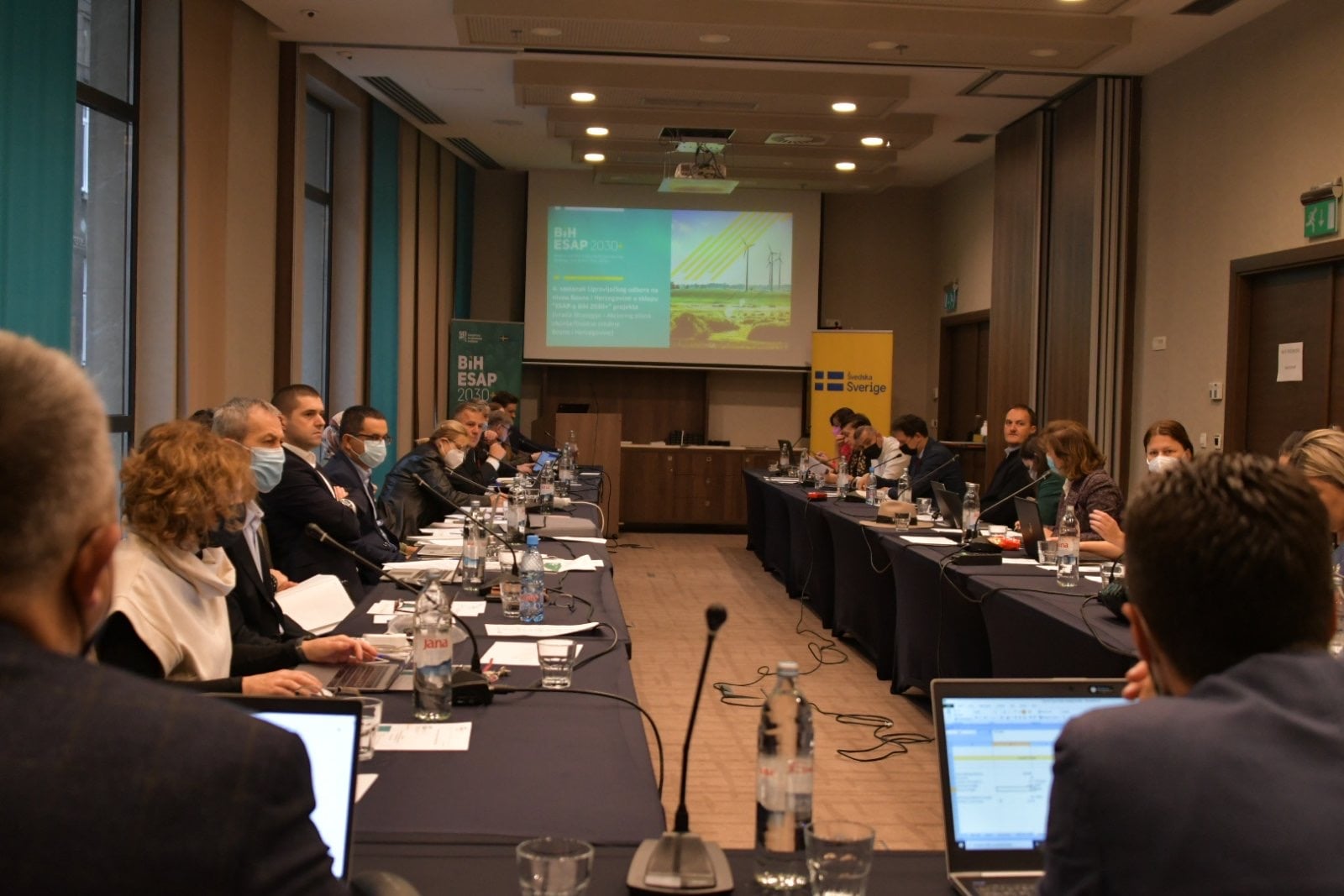
Access to environmental data is crucial
One of the key challenges identified throughout all ESAP thematic areas is BiH’s reporting on the state of its environment to the European Commission and to international agreements ratified by BiH so far. Quality data and environmental statistics are key for monitoring and evaluating progress towards planned goals and identifying the interrelations between achieving different goals and objectives. Decision-makers must have quality environmental data and statistics at their disposal as a basis for planning so that they can better understand how existing policies have a positive or negative impact on the environment and vice versa.
Ms. Ševala Korajčević, Head of the Department for Transport, Environment, Energy and Regional Statistics (BiH Agency for Statistics), gave an insight into what will be crucial in the next 10 years to achieve the goals related to environmental reporting in BiH by saying:
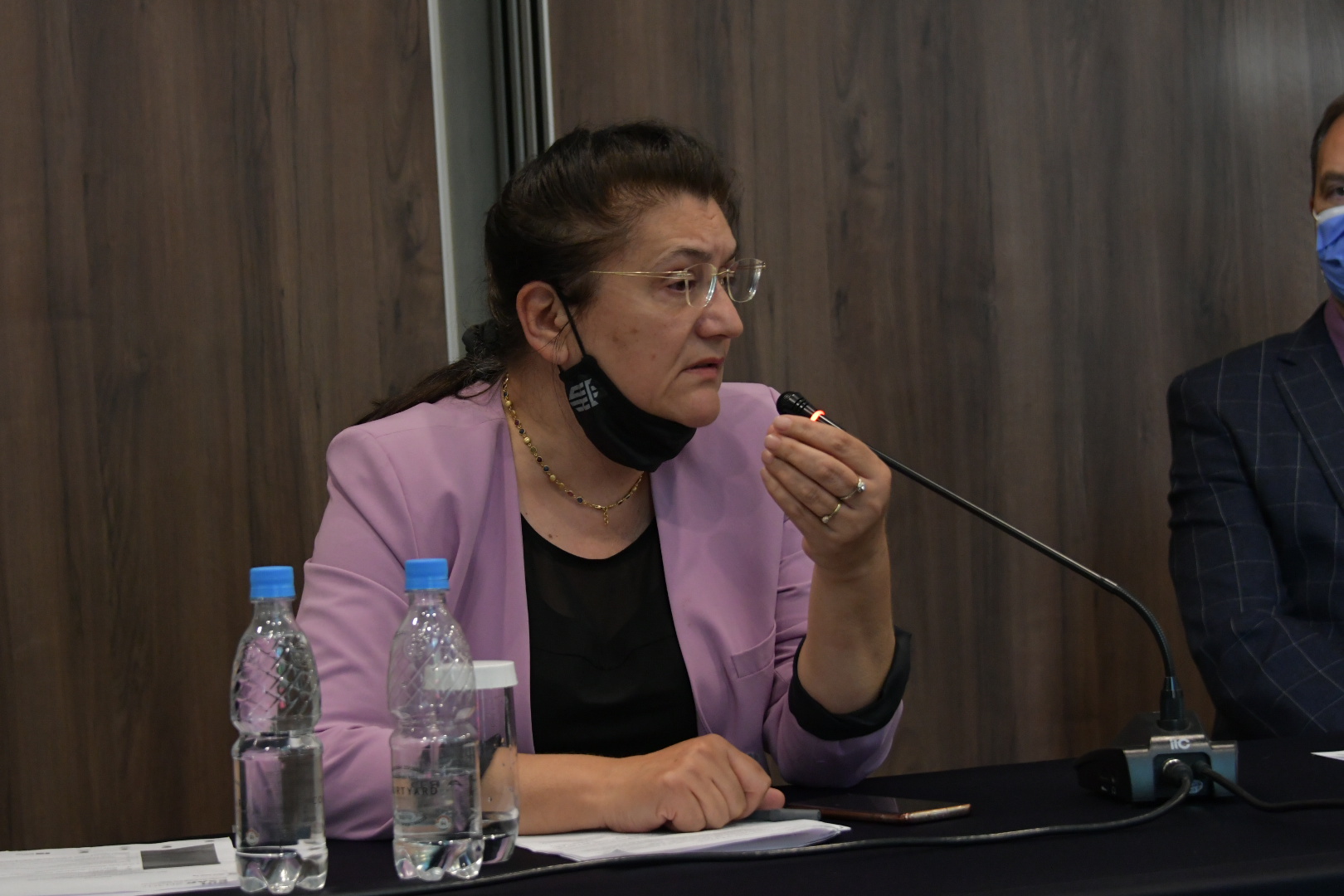
“The key challenges for achieving environmental reporting goals will be:
- providing capacity for data collectors and data management at the country level
- improving the quality and scope of environmental data for national decision-makers and policymakers
- lack of integration of collected environmental data in the process of planning national policies.
Regarding the key success factors for achieving the reporting objectives, they are: a clearly defined demand of environmental data users, good understanding of existing problems with data and environmental statistics, clearly defined ways to improve the situation based on identified demand and problems, and the participation of all relevant institutions.
Therefore, as the project progresses, there remains an urgent need to create understanding among decision-makers and policymakers on how to use data, environmental statistics and environmental accounts in the national planning process. Also, all relevant institutions should have an official environmental statistics unit with professional staff. ”
Participatory approach enables different issues to be discussed
The participatory approach, which implies the participation of all relevant stakeholders, has been applied from the very beginning of the project, Given the administrative system of BiH as well as the Federation of BiH, active participation of representatives of cantonal institutions within the Federation of BiH is of great importance for the development, but also the future implementation of BiH ESAP 2030+ in FBiH. Representatives of cantonal institutions are both members of Working, and the Policy Groups, which is very important when discussing open questions related to measures that might affect their work.
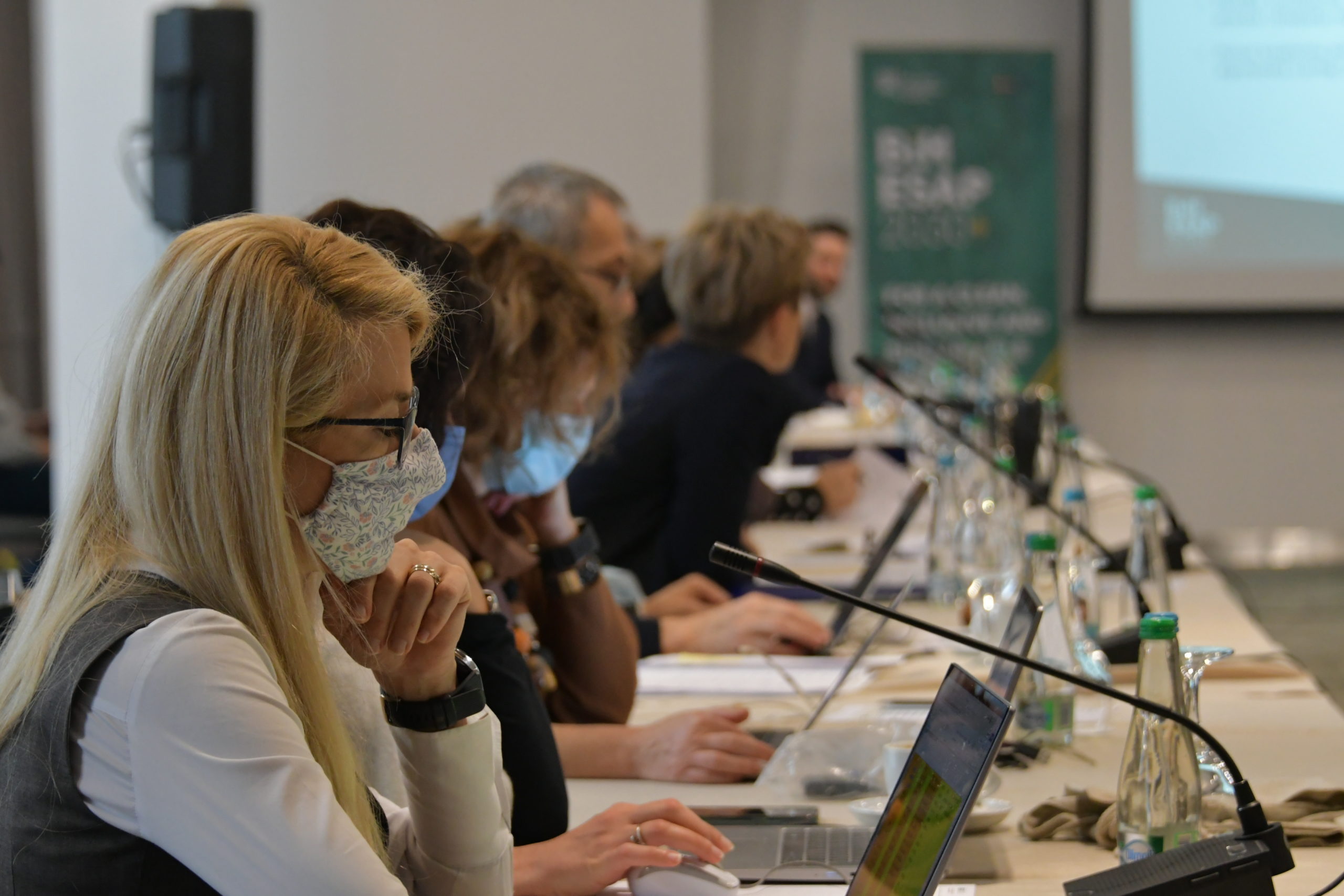
Ms. Anita Jakovljević, Environmental Advisor (Canton of Central Bosnia) summarizes her impressions from the fourth meeting of the FBiH Level Steering Committee: “As a member of the FBiH Policy Group for the BiH ESAP 2030+ project, I believe that key challenges and the expected outcomes are adequately recognized in the Action Plan. It will help the canton achieve environmental sustainability and improve the health and well-being of current and future generations of citizens.”
When it comes to the one of seven BiH ESAP thematic areas, Chemical Safety and Noise, knowledge and research are still limited in BiH (especially for Noise). Legislation is only partially harmonized with the EU acquis, but the topic also lacks general public’s awareness about the impacts of chemicals and noise on human health.
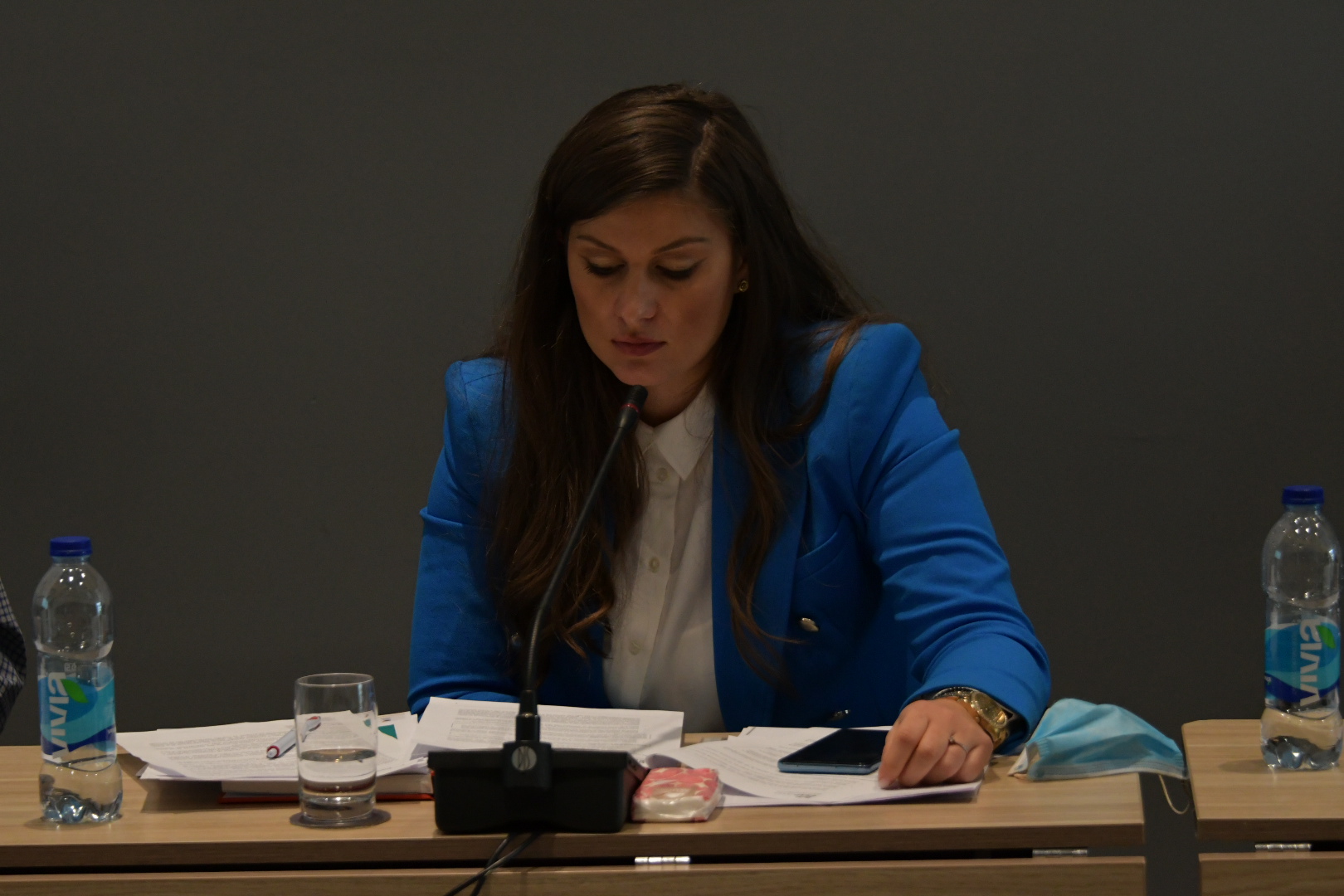
Mrs. Vesna Vipotnik, Assistant Minister (Ministry of Health and Social Welfare of Republika Srpska), expressed her opinion on the possibility of achieving goals in the field of chemical safety and noise and what will be the biggest challenge in implementation. Vipotnik states: “Having in mind that chemicals affect every part of human life, the establishment of a safe chemical management system enables maximum use of all positive effects of chemicals on economic development and quality of life, but also an effective prevention of their possible harmful effects on human health and environment. Therefore, it is extremely important to continuously work on the development of a chemical safety system.” The big challenge is not only to harmonize legislation with European regulations, but also to create institutional preconditions for their implementation. Republika Srpska has established and is continuously improving its chemical management system in accordance with EU directives.
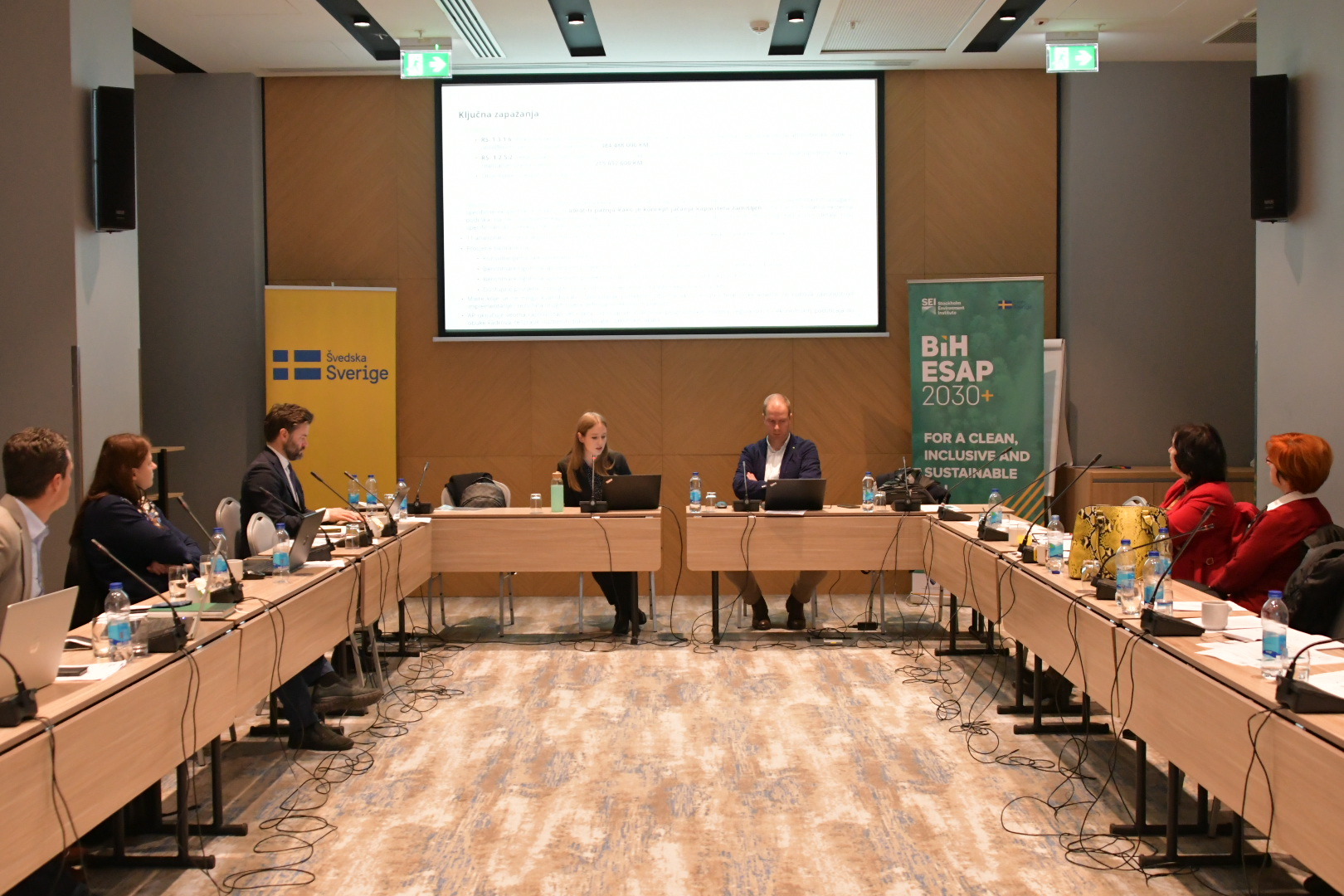
Mrs. Vipotnik explains further: “When it comes to the assessment of such complex and wide area as chemical safety, the good news is that a vast of documentation in this area has been prepared by the EU. The bad news is the non-existence and inconsistency of chemical regulations in the Federation of Bosnia and Herzegovina in relation to the Republika Srpska. In the hope that, in the period ahead, we will successfully overcome the difficulties that arise before the implementation of such an important project for the Republika of Srpska, Bosnia and Herzegovina and our whole region, I would appreciate all the efforts of RS Policy Group in this regard. I hope that the implementation of BiH ESAP 2030+ will harmonized regulations in order to establish a system of safe management of chemicals.”
Environmental and social issues closely interlinked
Since the current state of the environment and the required improvements are closely related to issues of gender equality, social equality and poverty (GESEP), the project team is continuously working on integrating the GESEP component in BiH ESAP 2030+, which is one of the pioneering endeavors, when it comes to strategic documents in the area of environmental protection in BiH.
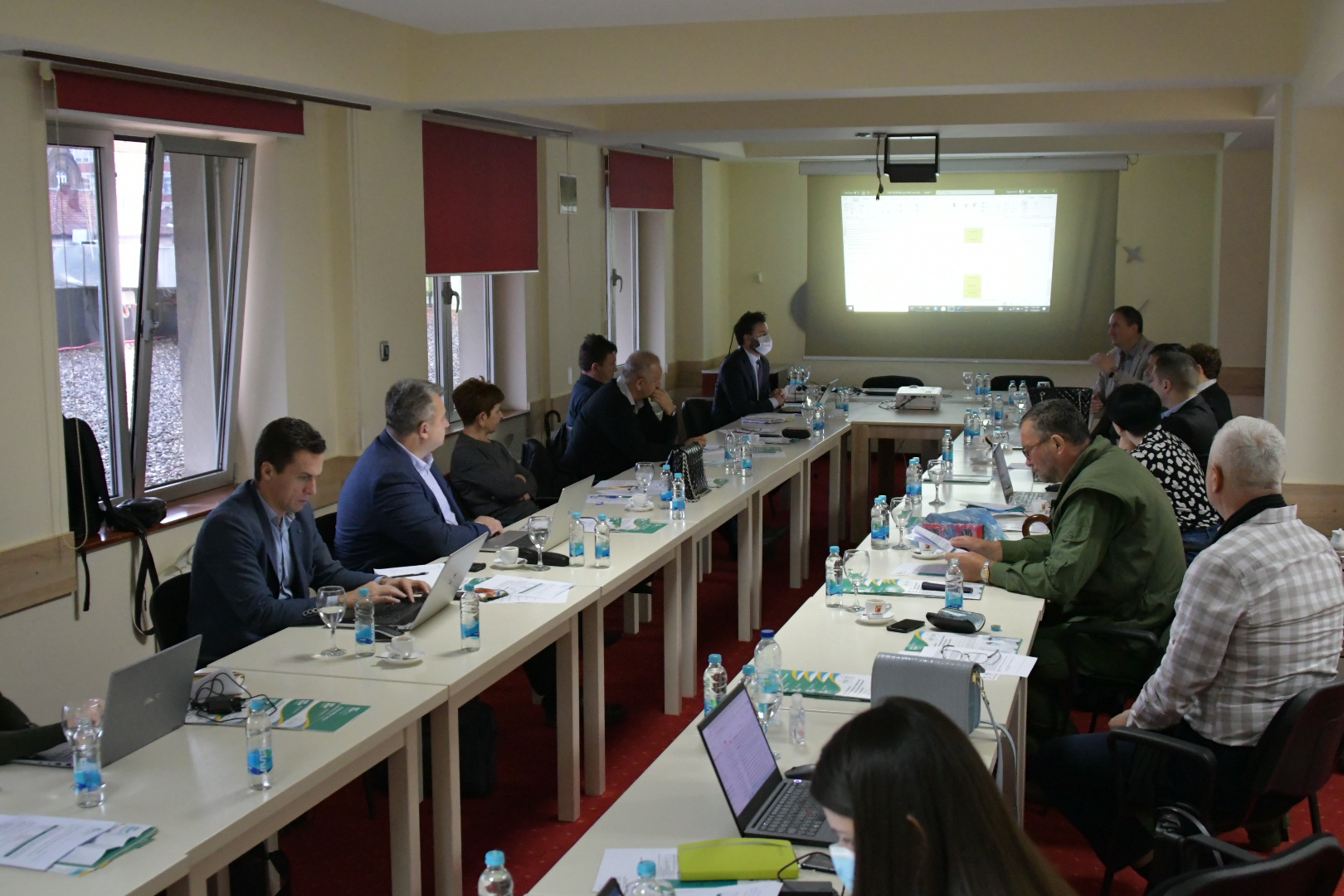
Ms. Aida Nišić, Senior Expert Associate for Legal Affairs, Department for Displaced Person/Refugees and Housing Issues of the Government of Brčko District BiH, encompasses her impressions from the meeting of the Steering Board of Brčko District BiH, with words about the importance of BiH ESAP for our country:
“The strategy and action plan for the protection of the environment are very important strategic documents that are being developed for Bosnia and Herzegovina, and the integral parts will be the entity strategies and the strategy for the Brčko District of BiH. All relevant institutions of the Brčko District, as well as NGOs and representatives of gender centers, are involved in the preparation of this important strategic document with the aim of contributing to environmental protection as well as to the impact on all segments of society and on the environment as a whole. The positive effect is especially evident through various seminars, webinars and meetings on this topic, where interactive work certainly contributes to strengthening the role of all in the development of such strategic documents, and it also contributes to increasing the level of knowledge of all students.”
What comes next?
The BiH ESAP 2030+ project is a milestone for Bosnia and Herzegovina in terms of achieving EU standards that will make it easier for the country to join the EU. Due to its complexity, the project will be extended until August 2022, and the next meetings of the Policy Groups are planned for February 2022, while the next meeting of the BiH ESAP 2030+ Steering Board – ministerial level, is planned for March 2022.

